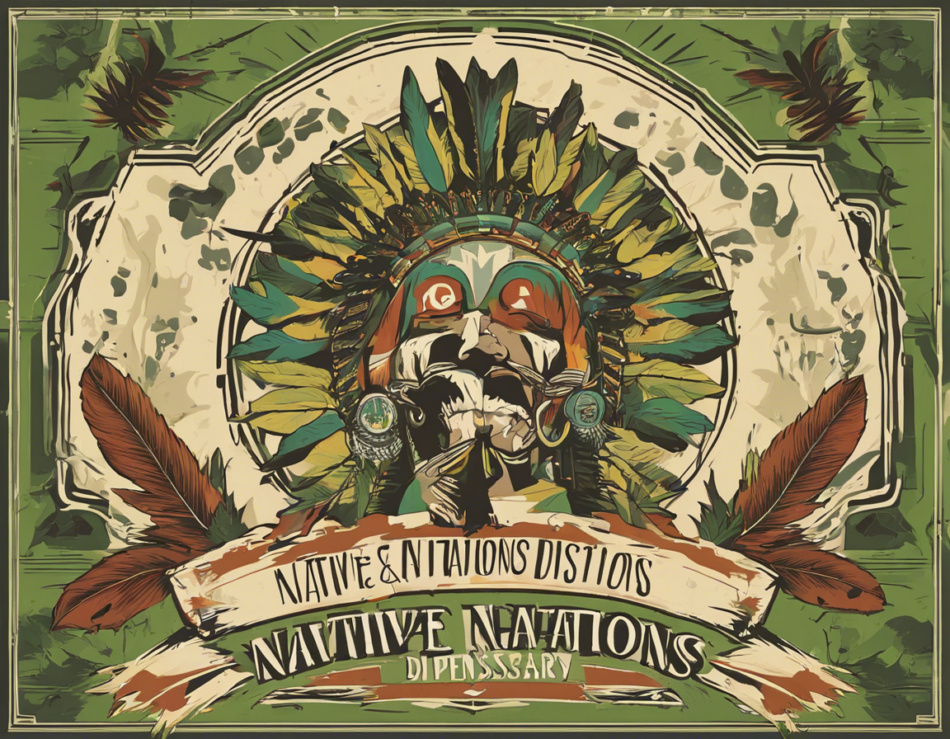When it comes to purchasing cannabis products, visiting a Native Nations dispensary offers a unique and enriching experience. These dispensaries, located on sovereign tribal lands, not only provide access to high-quality products but also offer a glimpse into the rich cultural heritage of the Indigenous communities. In this article, we will delve into the world of Native Nations dispensaries, exploring what sets them apart, the regulations that govern them, the products they offer, and the benefits of supporting these establishments.
Understanding Native Nations Dispensaries
Native Nations dispensaries are cannabis retail establishments located on Indigenous tribal lands. These lands are considered sovereign, meaning that they are self-governed and operate under their own set of laws and regulations. This sovereignty extends to the regulation of cannabis within these territories, allowing Native Nations to establish their own cannabis dispensaries and control the production, sale, and consumption of cannabis products.
What Sets Native Nations Dispensaries Apart?
-
Cultural Experience: Visiting a Native Nations dispensary offers a unique cultural experience, allowing customers to learn about Indigenous traditions, values, and practices.
-
Authentic Products: Many Native Nations dispensaries prioritize sustainable cultivation practices and offer locally sourced products that reflect the heritage and values of the Indigenous community.
-
Community Impact: By supporting Native Nations dispensaries, customers are directly contributing to the economic development and self-sustainability of Indigenous communities.
-
Regulatory Autonomy: Native Nations have the authority to create their own regulations regarding cannabis, allowing for innovative approaches to cannabis legalization and distribution.
Regulations Governing Native Nations Dispensaries
While Native Nations have the autonomy to regulate cannabis within their territories, they must still adhere to certain guidelines:
-
Federal Laws: Native Nations dispensaries must comply with federal laws regarding cannabis, including regulations set forth by the Department of Justice and the Drug Enforcement Administration.
-
Tribal Regulations: Each Native Nation may establish its own regulations regarding cannabis cultivation, distribution, and sale. These regulations can vary widely between different tribes.
-
State Laws: Some Native Nations operate within states that have legalized cannabis for both medical and recreational use. In these cases, dispensaries must also adhere to state regulations.
Products Offered at Native Nations Dispensaries
Native Nations dispensaries typically offer a wide range of cannabis products, including:
-
Flower: Dried cannabis flower is one of the most popular products available at dispensaries. Customers can choose from a variety of strains with different flavors, aromas, and effects.
-
Edibles: Cannabis-infused edibles come in various forms, including gummies, chocolates, baked goods, and beverages. These products provide an alternative to smoking for those who prefer not to inhale cannabis.
-
Concentrates: Concentrates such as wax, shatter, and hash offer a highly potent form of cannabis that is popular among experienced users.
-
Topicals: Cannabis-infused lotions, balms, and salves are used for localized relief from pain, inflammation, and skin conditions.
-
Tinctures: Tinctures are liquid cannabis extracts that can be administered sublingually for fast-acting effects.
Benefits of Supporting Native Nations Dispensaries
There are several reasons why customers may choose to support Native Nations dispensaries:
-
Cultural Preservation: By purchasing cannabis products from Native Nations dispensaries, customers are supporting Indigenous traditions and cultural practices.
-
Community Development: Revenue generated by Native Nations dispensaries often goes back into the community, funding programs and initiatives that benefit tribal members.
-
Sustainable Practices: Many Native Nations prioritize sustainable and eco-friendly cultivation practices, focusing on organic and regenerative agriculture.
-
Cultural Education: Visiting a Native Nations dispensary can be an educational experience, providing insights into Indigenous history, traditions, and values.
FAQs about Native Nations Dispensaries
- Are non-Indigenous customers allowed to shop at Native Nations dispensaries?
-
Yes, most Native Nations dispensaries welcome customers from all backgrounds.
-
Do Native Nations dispensaries offer online ordering and delivery services?
-
Some dispensaries may offer online ordering and delivery, but services vary between establishments.
-
Can customers use credit or debit cards at Native Nations dispensaries?
-
Due to federal regulations, many Native Nations dispensaries operate on a cash-only basis.
-
Do Native Nations dispensaries carry products from non-Indigenous suppliers?
-
While some dispensaries focus on Indigenous-owned brands, others may carry products from a variety of suppliers.
-
How can customers learn more about the Indigenous cultures represented by Native Nations dispensaries?
- Dispensaries often have educational materials, workshops, or events that provide insights into the Indigenous cultures they represent.
Exploring a Native Nations dispensary offers more than just access to cannabis products; it provides an opportunity to support Indigenous communities, learn about their cultural heritage, and engage in a unique retail experience. By understanding the regulations that govern these establishments, the products they offer, and the benefits of supporting them, customers can make informed choices that align with their values and preferences.
